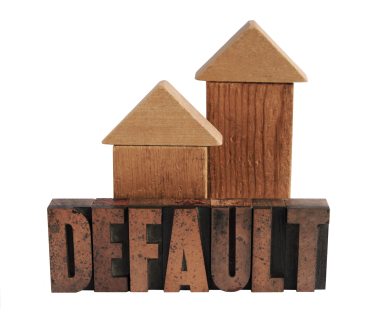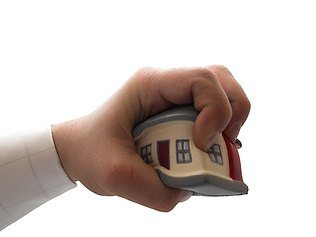Why homeowners choose strategic default when they can pay?
 With the state of the economy over the past decade, millions of Americans have been sitting on their homes as they wait out the foreclosure process, taking advantage of free living and waiting for a strategic default. A strategic default is the decision by the borrower to quit making payments on their debt, even though they have the financial ability to do so. In recent years, some borrowers have considered strategically defaulting on a mortgage loan once the home has become a bad investment. This is different from how many people view foreclosure as something that happens only when a homeowner can no longer afford the mortgage payments.
With the state of the economy over the past decade, millions of Americans have been sitting on their homes as they wait out the foreclosure process, taking advantage of free living and waiting for a strategic default. A strategic default is the decision by the borrower to quit making payments on their debt, even though they have the financial ability to do so. In recent years, some borrowers have considered strategically defaulting on a mortgage loan once the home has become a bad investment. This is different from how many people view foreclosure as something that happens only when a homeowner can no longer afford the mortgage payments.
Homeowners choose strategic default because they assume the value of their home will not recover to the original purchase price, or because they could rent a similar home for considerably less than they are paying on their mortgage. The temptation to default is great, but homeowners need to consider their morale and ethical obligations as well. Many homeowners can only see the advantages of strategic default, such as the chance to cut their losses and receive better loan negotiations from banks and lenders. However, the disadvantages of strategic default far outweigh its advantages. When you choose to strategically default on your mortgage, your credit scores will take a considerable hit and you will have a harder time applying for another mortgage in the future.
What Is Strategic Default?
Many properties have become so far underwater that it could take years before the home regains all of its value, if it ever does. In some cases, borrowers choose to stop making payments, even if they could afford to stay current, simply because the home has become a bad investment. This is known as strategic default, which is sometimes called voluntary foreclosure or “walking away.”
Generally, the term “strategic default” implies a different a situation then a homeowner who is struggling financially and cannot afford to keep paying the current mortgage payments. With a strategic default, the borrower does the math and makes a business decision to voluntarily stop making payments, even if it is within their ability to keep up on the payments. After the homeowner voluntarily stops making payments, the lender is forced to foreclose.
Alternatives to Strategic Default:-
In the past, there weren’t that many viable options out there to help borrowers with their underwater mortgages. However, now there are more lender-based and government-based programs that can provide assistance. Some of these options are:
- Short sales. A short sale is when you sell your home for less than the total debt balance remaining on your mortgage and the proceeds of the sale pay off a portion of the mortgage balance. However, keep in mind you may be subject to a deficiency judgment if you complete a short sale.
- Deeds in lieu of foreclosure. A deed in lieu of foreclosure occurs when a lender agrees to accept a deed to the property instead of foreclosing in order to obtain title. With a deed in lieu of foreclosure, you could face a deficiency judgment as well. The deficiency amount is the difference between the fair market value of the property and the total debt.
- FHA Refinance for Borrowers with Negative Equity (FHA Short Refinance). If you are underwater on your mortgage and would like to obtain more favorable mortgage terms, you might want to consider an FHA Short Refinance. If you qualify, your lender would reduce the amount you owe on your first mortgage to no more than 97.75% of the home’s current market value.
- HARP refinance. HARP (Home Affordable Refinance Program), which is part of the government’s Making Home Affordable initiative, is a program that allows eligible underwater homeowners who are current on their mortgages to refinance and take advantage of lower interest rates. HARP will not reduce the principal amount you owe, but would provide a more stable or affordable loan.
- Modify the loan to make it more affordable. Approach your mortgage servicer or lender to find out if they will modify the loan to make it more affordable.
If you walk, plan ahead:-
Stone says, many strategic defaulters open new, high-limit credit card accounts before they default. Others get mortgages and buy cheaper homes before they let go of their underwater property. Valadez says, when you know your credit will be damaged, it’s wise to stash away some money before default. Depending on which state you live in, you should consider whether the lender can sue you to collect the balance of the loan after the foreclosure is completed. If the lender sues and obtains a deficiency judgment against you, the debt can haunt you for years.
Maddux says, “Know all the consequences before you make a decision.”
Moral Implications of Strategic Default:-
Arguably, there are moral implications associated with walking away from an underwater home as well. Strategic defaulters tend to justify walking away from a severely underwater home as something permitted by the mortgage contract itself, which specifies the consequence of a breach, namely, the lender will foreclose and take the home. However, when you signed the promissory note, this constituted a promise to pay.
